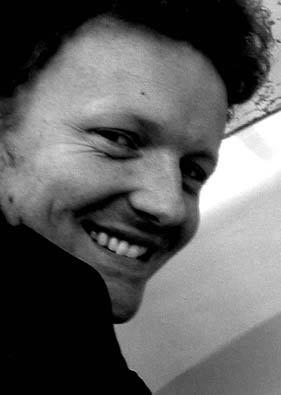Today I read a book called Organic Community by a guy called Joseph Myers. He is a bloke with his own business that helps people rethink how they are developing their communities, whether it be in the corporate or church world.
A lot of useful things were in it. One that stood out for me was the idea of accountability. We often tell people they need to be accountable to another. We find partners who we are accountable to. An example is the Promise Keepers (a men's accountability group), in which members ask these questions to each other:
- What one sin plagued your walk with God this week?
- Is your thought life pure?
- Did you look at a woman the wrong way?
- At any time did you compromise your integrity?
- Are you giving to the Lord's work financially?
- Are you walking in total obedience to God?
- Have you lied about any of the previous questions?
Myers says this:
Wow! There is such an underlying expectation of failure phrased in a language of absolutes and either/ors (p134)...accountability relationships are built on the understanding that people are primarily bad and sinful. The accountability partner (like an accountant) looks for mistakes and keeps an account. The accountability partner emphasizes and inadvertently reinforces the negative behaviour by concentrating on it (p142).
Instead, Myers suggests we look at such relationships in a different way – a relationship that encourages spiritual development in a spirit of grace, not law. He says – let's think of the partner relationship not like that of a client and his accountant but rather as that of an author and his editor.
An editor's training, job and passion are to help an author towards richer communication...a good editor wants the author's voice to be the best it can be and thus reinforces rules only when they want the author to be heard. The editor makes suggestions and corrects errors only to enable the author's voice to shine as brightly as possible. The editor makes suggestions but leaves the major reworking with the individual (p142).


2 comments:
Great point! An author and editor - I like it.
Fiery,
I don't think I get it, or maybe I do, is he saying that you live your life and then you go and tell your editor when you've stuffed up, or you go and talk to your editor and then he helps you to deal with any mistakes you've made?
It sounds like a good idea, I knew a young guy who got together with a group of guys each week, who I'm pretty sure used these questions, or some similar. I know they found it encouraging, especially since they knew they would have to tell the group if they did the wrong thing. BUt I don't know if that goes against the idea that the author has. THe assumption in their group was that they all knew where the lines were, and therefore when they had been overstepped.
Thanks for your constant reading and thinking, it is very encouraging.
Simmo
Post a Comment